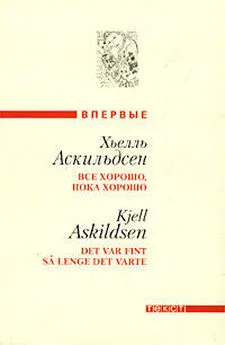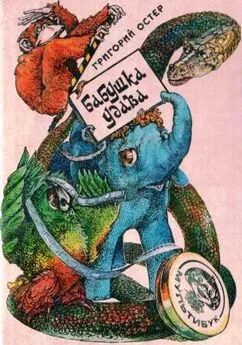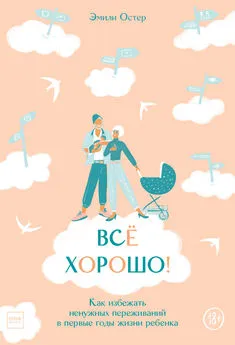Эмили Остер - Всё хорошо!
- Название:Всё хорошо!
- Автор:
- Жанр:
- Издательство:Манн, Иванов и Фербер
- Год:2020
- ISBN:9785001690887
- Рейтинг:
- Избранное:Добавить в избранное
-
Отзывы:
-
Ваша оценка:
Эмили Остер - Всё хорошо! краткое содержание
Всё хорошо! - читать онлайн бесплатно полную версию (весь текст целиком)
Интервал:
Закладка:
15.Hopkins D., Emmett P., Steer C., Rogers I., Noble S., Emond A. Infant feeding in the second 6 months of life related to iron status : An observational study // Archives of Disease in Childhood. 2007. № 92 (10). Р. 850–854.
16.Pegram P. S., Stone S. M. Botulism. UpToDate. URL: http://www.uptodate.com/contents/botulism.
17.Emmerson A. J. B., Dockery K. E., Mughal M. Z., Roberts S. A., Tower C. L., Berry J. L. Vitamin D status of white pregnant women and infants at birth and 4 months in North West England : A cohort study // Maternal & Child Nutrition. 2018. № 14 (1).
18.Greer F. R., Marshall S. Bone mineral content, serum vitamin D metabolite concentrations, and ultraviolet B light exposure in infants fed human milk with and without vitamin D 2supplements // The Journal of Pediatrics. 1989. № 114 (2). Р. 204–212; Naik P., Faridi M. M. A., Batra P., Madhu S. V. Oral supplementation of parturient mothers with vitamin D and its effect on 25OHD status of exclusively breastfed infants at 6 months of age : A double-blind randomized placebo controlled trial // Breastfeeding Medicine. 2017. № 12 (10). Р. 621–628.
19.Naik P. et al. Oral supplementation of parturient mothers with vitamin D; Thiele D. K., Ralph J., El-Masri M., Anderson C. M. Vitamin D 3supplementation during pregnancy and lactation improves vitamin D status of the mother-infant dyad // Journal of Obstetric, Gynecologic, & Neonatal Nursing. 2017. № 46 (1). Р. 135–147.
Глава 13. Когда ребенок пойдет: физиологические вехи
1.Serdarevic F., Van Batenburg-Eddes T., Mous S. E., et al. Relation of infant motor development with nonverbal intelligence, language comprehension and neuropsychological functioning in childhood : A population-based study // Developmental Science. 2016. № 19 (5). Р. 790–802.
2.Murray G. K., Jones P. B., Kuh D., Richards M. Infant developmental milestones and subsequent cognitive function // Annals of Neurology. 2007. № 62 (2). Р. 128–136.
3.Much of the discussion here comes from Voigt R. G. Developmental and behavioral pediatrics / Eds. by M. M. Macias and S. M. Myers. American Academy of Pediatrics, 2011.
4.Barkoudah E., Glader L. Epidemiology, etiology and prevention of cerebral palsy. UpToDate. URL: https://www.uptodate.com/contents/cerebral-palsy-epidemiology-etiology-and-prevention.
5.WHO Motor Development Study : Windows of achievement for six gross motor development milestones // Acta Paediatrica. 2006. № 450. Р. 86–95.
6.WHO Motor Development Study.
7.Pappas D. The common cold in children : Clinical features and diagnosis. UpToDate. URL: https://www.uptodate.com/contents/the-common-cold-in-children-clinical-features-and-diagnosis.
8.Pappas D. The common cold in children.
9.Klein J., Pelton S. Acute otitis media in children : Epidemiology, microbiology, clinical manifestations, and complications. UpToDate. URL: https://www.uptodate.com/contents/acute-otitis-media-in-children-epidemiology-microbiology-clinical-manifestations-and-complications.
Глава 14. Маленькие Эйнштейны против телевизора
1.Barr R., Hayne H. Developmental changes in imitation from television during infancy // Child Development. 1999. № 70 (5). Р. 1067–1081.
2.Kuhl P. K., Tsao F. M., Liu H. M. Foreign-language experience in infancy : Effects of short-term exposure and social interaction on phonetic learning // Proceedings of the National Academy of Sciences USA. 2003. № 100 (15). Р. 9096–9101.
3.DeLoache J. S., Chiong C. Babies and baby media // American Behavioral Scientist. 2009. № 52 (8). Р. 1115–1135.
4.Robb M. B., Richert R. A., Wartella E. A. Just a talking book? Word learning from watching baby videos // British Journal of Developmental Psychology. 2009. № 27 (Pt 1). Р. 27–45.
5.Richert R. A., Robb M. B., Fender J. G., Wartella E. Word learning from baby videos // Archives of Pediatrics & Adolescent Medicine. 2010. № 164 (5). Р. 432–437.
6.Rice M. L., Woodsmall L. Lessons from television : Children’s word learning when viewing // Child Development. 1988. № 59 (2). Р. 420–429.
7.Bogatz G. A., Ball S. The Second Year of Sesame Street : A Continuing Evaluation (vol. 1). Princeton, NJ : Educational Testing Service, 1971.
8.Kearney M. S., Levine P. B. Early childhood education by MOOC : Lessons from Sesame Street // National Bureau of Economic Research working paper no. 21229. June 2016.
9.Nathanson A. I., Aladé F., Sharp M. L., Rasmussen E. E., Christy K. The relation between television exposure and executive function among preschoolers // Developmental Psychology. 2014. № 50 (5). Р. 1497–1506.
10.Crespo C. J., Smit E., Troiano R. P., Bartlett S. J., Macera C. A., Andersen R. E. Television watching, energy intake, and obesity in US children : Results from the third National Health and Nutrition Examination Survey, 1988–1994 // Archives of Pediatrics & Adolescent Medicine. 2001. № 155 (3). Р. 360–365.
11.Zimmerman F. J., Christakis D. A. Children’s television viewing and cognitive outcomes : A longitudinal analysis of national data // Archives of Pediatrics & Adolescent Medicine. 2005. № 159 (7). Р. 619–625.
12.Gentzkow M., Shapiro J. M. Preschool television viewing and adolescent test scores : Historical evidence from the Coleman Study // The Quarterly Journal of Economics. 2008. № 123 (1). Р. 279–323.
13.Handheld screen time linked with speech delays in young children. Abstract presented at American Academy of Pediatrics, PAS meeting, 2017.
Глава 15. Когда ребенок заговорит: речевое развитие
1.Nelson K. Narratives from the Crib. Cambridge, MA : Harvard University Press, 2006.
2.The MacArthur-Bates Communicative Development Inventory : Words and sentences. URL: https://www.region10.org/r10website/assets/File/Mac%20WS_English.pdf.
3.URL: http://wordbank.stanford.edu/analyses?name=vocab_norms.
4.Rescorla L., Bascome A., Lampard J., Feeny N. Conversational patterns and later talkers at age three // Applied Psycholinguistics. 2001. № 22. Р. 235–251.
5.Rescorla L. Age 17 language and reading outcomes in late-talking toddlers : Support for a dimensional perspective on language delay // Journal of Speech, Language, and Hearing Research. 2009. № 52 (1). Р. 16–30; Rescorla L. Language and reading outcomes to age 9 in late-talking toddlers // Journal of Speech, Language, and Hearing Research. 2002. № 45 (2). Р. 360–371; Rescorla L., Roberts J., Dahlsgaard K. Late talkers at 2 : Outcome at age 3 // Journal of Speech, Language, and Hearing Research. 1997. № 40 (3). Р. 556–566.
6.Hammer C. S., Morgan P., Farkas G., Hillemeier M., Bitetti D., Maczuga S. Late talkers : A population-based study of risk factors and school readiness consequences // Journal of Speech, Language, and Hearing Research. 2017. № 60 (3). Р. 607–626.
7.Lee J. Size matters : Early vocabulary as a predictor of language and literacy competence // Applied Psycholinguistics. 2011. № 32 (1). Р. 69–92.
8.Thal D. J. et al. Continuity of language abilities : An exploratory study of late and early talking toddlers // Developmental Neuropsychology. 1997. № 13 (3). Р. 239–273.
9.Crain-Thoreson C., Dale P. S. Do early talkers become early readers? Linguistic precocity, preschool language, and emergent literacy // Child Development. 1992. № 28 (3). Р. 421.
Глава 16. Приучение к горшку: наклейки и конфетки
1.Blum N. J., Taubman B., Nemeth N. Why is toilet training occurring at older ages? A study of factors associated with later training // The Journal of Pediatrics. 2004. № 145 (1). Р. 107–111.
2.Blum N. J. et al. Why is toilet training occurring at older ages?
3.Gilson D., Butler K. A Brief History of the Disposable Diaper // Mother Jones. Май/июнь 2008. URL: https://www.motherjones.com/environment/2008/04/brief-history-disposable-diaper.
4.Blum N. J., Taubman B., Nemeth N. Relationship between age at initiation of toilet training and duration of training : A prospective study // Pediatrics. 2003. № 111 (4). Р. 810–814.
5.Vermandel A., Van Kampen M., Van Gorp C., Wyndaele J. J. How to toilet train healthy children? A review of the literature // Neurourology and Urodynamics. 2008. № 27 (3). Р. 162–166.
6.Гловацки Д. Откажитесь от подгузников! Как приучить ребенка к горшку за 3 дня. — М. : Эксмо-Пресс, 2017.
7.Jensen L. 3-Day Potty Training. 2014.
8.Vermandel A. et al. How to toilet train healthy children?
9.Greer B. D., Neidert P. L., Dozier C. L. A component analysis of toilet-training procedures recommended for young children // Journal of Applied Behavior Analysis. 2016. № 49 (1). Р. 69–84.
10.Russell K. Among healthy children, what toilet-training strategy is most effective and prevents fewer adverse events (stool withholding and dysfunctional voiding)? : Part A : Evidence-based answer and summary // Paediatrics & Child Health. 2008. № 13 (3). Р. 201–202.
11.Flensborg-Madsen T., Mortensen E. L. Associations of early developmental milestones with adult intelligence // Child Development. 2018. № 89 (2). Р. 638–648.
12.Taubman B. Toilet training and toileting refusal for stool only : A prospective study // Pediatrics. 1997. № 99 (1). Р. 54–58.
13.Brooks R. C., Copen R. M., Cox D. J., Morris J., Borowitz S., Sutphen J. Review of the treatment literature for encopresis, functional constipation, and stool-toileting refusal // Annals of Behavioral Medicine. 2000. № 22 (3). Р. 260–267.
14.Taubman B., Blum N. J., Nemeth N. Stool toileting refusal : A prospective intervention targeting parental behavior // Archives of Pediatrics & Adolescent Medicine. 2003. № 157 (12). Р. 1193–1196.
15.Taubman B. Toilet training and toileting refusal for stool only.
16.Kliegman R., Nelson W. E. Nelson Textbook of Pediatrics. Philadelphia : W. B. Saunders Company, 2007.
17.Rugolotto S., Sun M., Boucke L., Calò D. G., Tatò L. Toilet training started during the first year of life : A report on elimination signals, stool toileting refusal and completion age // Minerva pediatrica. 2008. № 60 (1). Р. 27–35.
Глава 17. Дисциплина
1.Друкерман П. Французские родители не сдаются. — М. : Синдбад, 2014.
2.Фелан Т. Магия на 1-2-3. Как перестать срываться на ребенка и начать общаться спокойно и с удовольствием. — М. : Бомбора, 2019.
Читать дальшеИнтервал:
Закладка:









